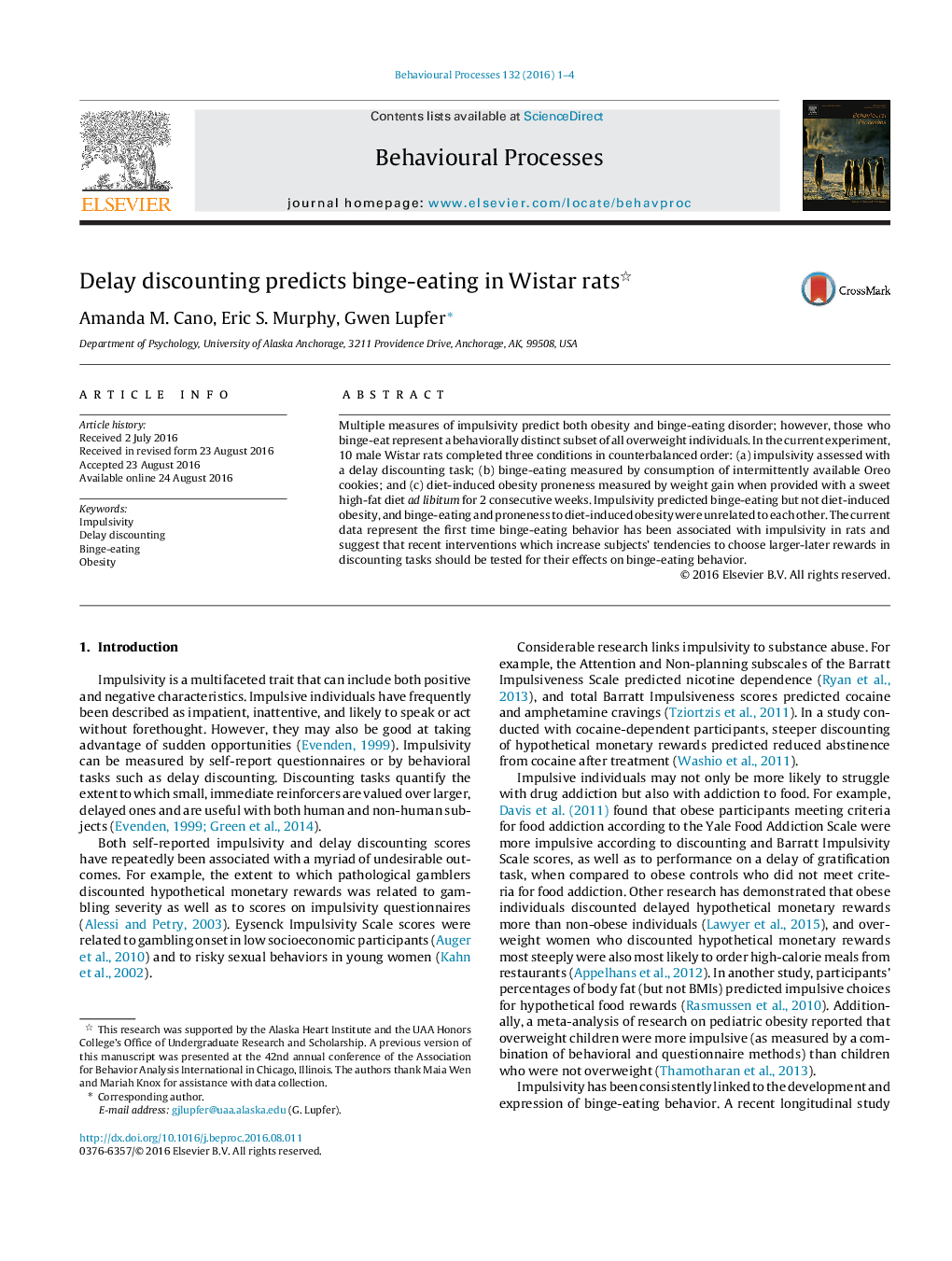| Article ID | Journal | Published Year | Pages | File Type |
|---|---|---|---|---|
| 2426358 | Behavioural Processes | 2016 | 4 Pages |
•Rats that steeply discounted delayed reinforcers were most prone to binge-eating.•Delay discounting was not related to susceptibility to diet-induced obesity.•Binge-eating behavior was also unrelated to diet-induced obesity.
Multiple measures of impulsivity predict both obesity and binge-eating disorder; however, those who binge-eat represent a behaviorally distinct subset of all overweight individuals. In the current experiment, 10 male Wistar rats completed three conditions in counterbalanced order: (a) impulsivity assessed with a delay discounting task; (b) binge-eating measured by consumption of intermittently available Oreo cookies; and (c) diet-induced obesity proneness measured by weight gain when provided with a sweet high-fat diet ad libitum for 2 consecutive weeks. Impulsivity predicted binge-eating but not diet-induced obesity, and binge-eating and proneness to diet-induced obesity were unrelated to each other. The current data represent the first time binge-eating behavior has been associated with impulsivity in rats and suggest that recent interventions which increase subjects’ tendencies to choose larger-later rewards in discounting tasks should be tested for their effects on binge-eating behavior.
